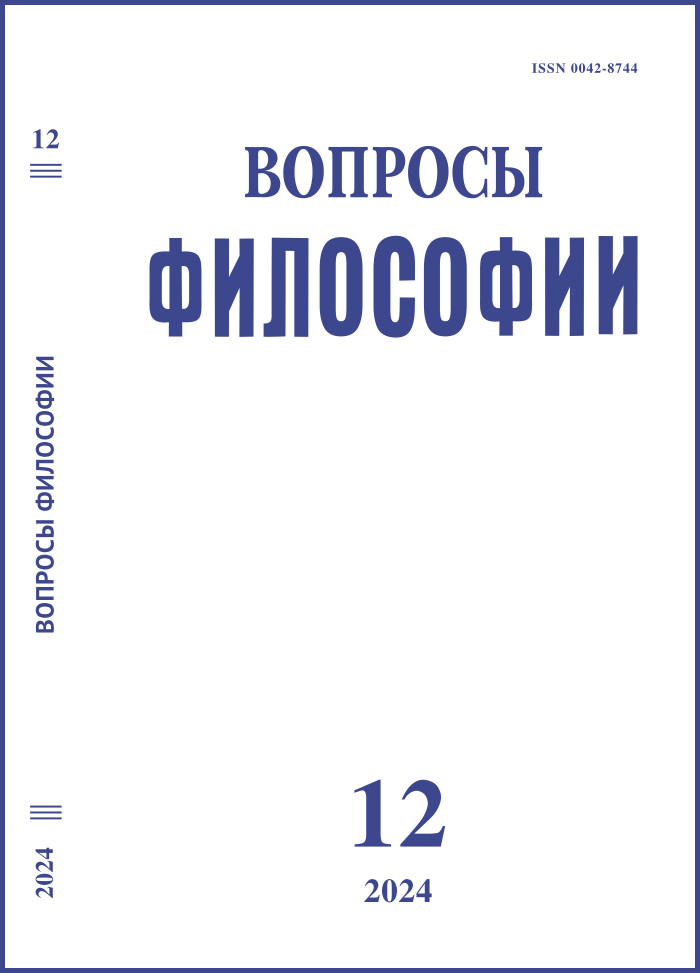The Problem of “One’s Place” in the Research of Dmitry Chizhevsky and Mikhail Bakhtin: Parallels and Intersections
DOI:
https://doi.org/10.21146/0042-8744-2024-12-113-123Keywords:
D.I. Chizhevsky, M.M. Bakhtin, F.M. Dostoevsky, the problem of “one’s place”, “The Double”, duality, ethical subject, identityAbstract
Currently, the philosopher and Slavic philologist Dmitry Chizhevsky (1894–1977) remains one of the least studied and represented thinkers in Russia. This article aims to help improving this situation. The conceptual basis of this study proposes a comparative approach to highlight Chizhevsky’s significant philosophical importance, which is often overshadowed by his purely historical and literary studies. Specifically, the author suggests comparing Chizhevsky with such a prominent and controversial thinker of the 20th century as Mikhail Bakhtin. The focus of the comparison is the problem of “one’s place” as a specific expression of the idea of concreteness in the Russian philosophical tradition of the 19th and 20th centuries. It is argued that Chizhevsky’s work was the first to explore the problem of “one’s place” philosophically, particularly in his analysis of Dostoevsky’s theme of duality. However, the author demonstrates that Bakhtin had actually identified this problem earlier, specifically in the context of his literary studies of Dostoevsky’s work. Furthermore, the problem of “one’s place” developed in a different way in both Chizhevsky’s and Bakhtin’s philosophical ideas. On this basis, it is concluded that these two thinkers share a certain congeniality. Through a comparative analysis, the author concludes that Chizhevsky is as significant for twentieth-century philosophical thought as Bakhtin, and it is precisely this philosophical significance that allows us to approach a more holistic understanding of Chizhevsky as a researcher and thinker

